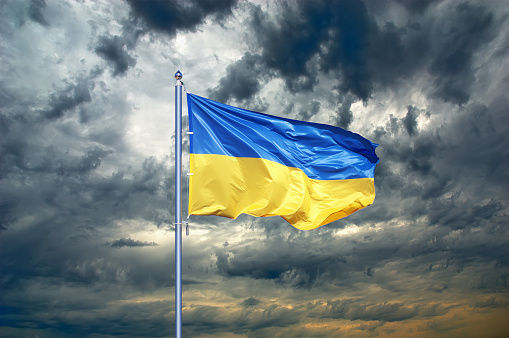The (potential) impact of AI on the individual research process and science in general
To launch our new section ‘AI in Research’ Sascha Schönig spoke to Theresa Züger, head of the Public Interest AI research group, about the influence of AI on her personal day-to-day work in research, as well as on the science system as a whole. She gave some exciting insights about the risks and opportunities AI bears for research work and talked about tools her team is developing at the Alexander von Humboldt Institute for Internet and Society.
A Journey from researcher to influencer: TikTok as a methodological tool
Tinca Lukan explores TikTok’s use in ethnographic research on social media influencers, detailing how she integrated it into her PhD study on influencers’ working conditions in Slovenia.
Do you dare? What female scientists expect when communicating
Scientists are increasingly expected to engage with the public. At the same time, they face increasing hostility when they speak out. Female scientists, as a more frequent target of sexist hostility, fear being attacked and enjoy speaking out less than their male counterparts. The question arises: Is science communication really feasible for everyone in the current hostile environment? This short analysis focuses on female scientists as a subgroup of a large survey sample and how their assessment of public engagement differs from that of their male counterparts.
________________________________________________________________________________________________________

ChatGPT and other generative AI applications have once again cast the spotlight on AI and its purpose in academic research. Heralded by some as the ultimate time-saver and means to ease administrative burdens, its reception in academic circles varies. How much do researchers actually know about this technology and how it works? Critical voices express reservations about the potential negative implications AI has on the integrity of research as well as cite the potential harmful practices related to the dissemination of bias and inaccurate information. This debate surrounding the involvement of AI in research is fervent among academics, policymakers and legal experts, centering on the question: What role should AI have in the research process?
In this special issue, we explore the role of AI in the research process. Submissions may address, but are not limited to the following topics:
- The challenges, dangers and opportunities AI presents for research
- Ethical and legal considerations associated with using AI in research
- Skill sets and competencies researchers need to use AI
- AI’s influence on authorship and publishing practices
- Comparative analysis of AI & research practices across diverse academic disciplines and geographical contexts
Contribute
You are more than welcome to contribute to this Special Issue. Just drop us a line with your idea.
If you want to learn more about our formats, check out how we do things. If you want to stay up to date, subscribe to our newsletter.
________________________________________________________________________________________________________
In light of the current war in the Ukraine we have decided to open a telegram group and a telegram bot which will provide information on support for researchers and students from Ukraine.
We will open the group so that information can be exchanged, knowledge shared and advice given. In the upcoming weeks we will post recommendations, initiatives, share interviews and experiences and try to provide as much information as possible that could be useful in any way. Our approach is a collaborative, bottom-up one – so feel free to contribute with relevant information.

________________________________________________________________________________________________________
What happens to science when it communicates?
In August 2023 Benedikt Fecher conducted an interview with Clemens Blümel from the German Centre for Higher Education Research and Science Studies (DZHW) on the topic of ‘what happens when science opens up and communicates’ and the emerging challenges for future scientific communication.
Science and Society need more interaction instead of mere communication. An Interview with Volker Meyer-Guckel
In this interview Teresa Völker speaks with Dr. Volker Meyer-Guckel about challenges and possible futures of science communication.
Populism, Science and Public Discourse: An Interview with Niels Mede
Niels Mede on how the rise of populist politics affects academic work, science communication practices of scholars engaging in public discourse and ways to address these challenges.
Gender Disparity in Science
Bao & Huang on gender biases in Chinese scientific committees, calling for policy reforms in academia.
Between societal relevance and autonomy
Peter Weingart on changing perceptions of science’s role in society, safeguarding autonomy, and the concept of dual legitimacy for scientific knowledge in policy decisions.
How good science communication can support researchers in cases of hostility
Threats and attacks on researchers can lead them to self-isolate and retreat from public communication. We look at strategies to prevent this from happening.
Using RSS to keep track of the latest Journal Articles
This hands-on guide helps you setting up an RSS reader and build a personalized paper feed from your favorite journals.
Now it is time to build up the pressure! How to improve working conditions in academia
Kristin Eichhorn, co-initiator of #IchbinHanna, on fair working conditions in research and the failed reform proposal in Germany.
Achieving (Partial) Generalizability
Mennatullah Hendawy on six decisions that made her findings from her dissertation, a case study on interdisciplinary urban planning in Cairo, more generalizable.












